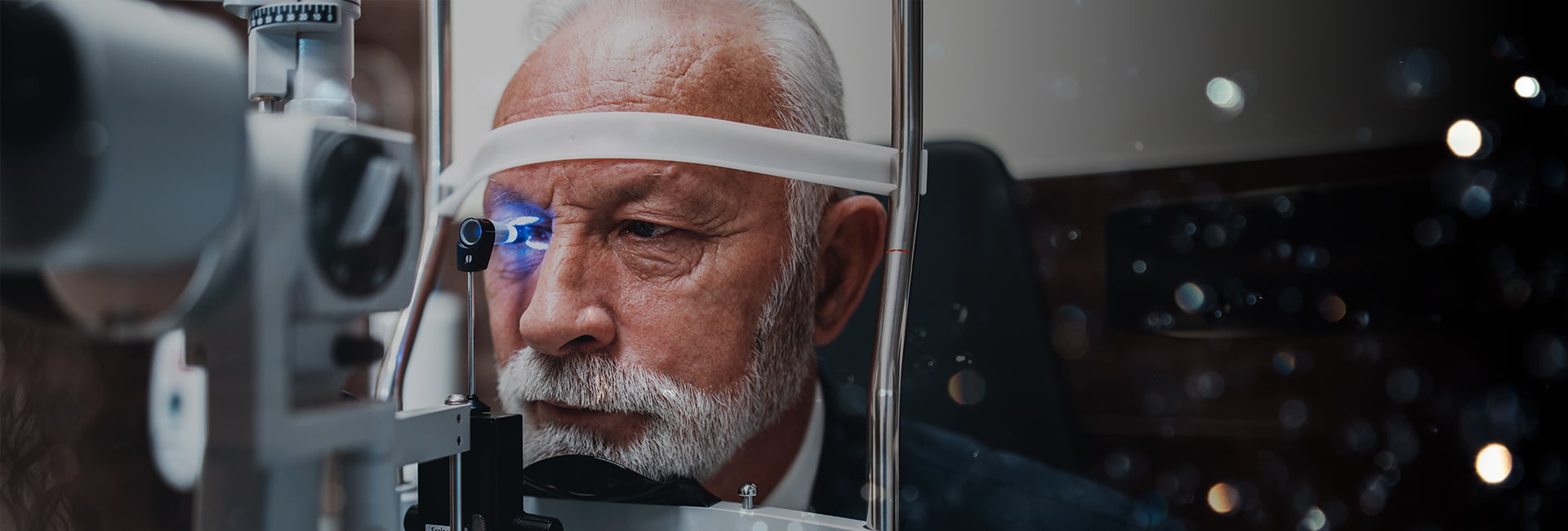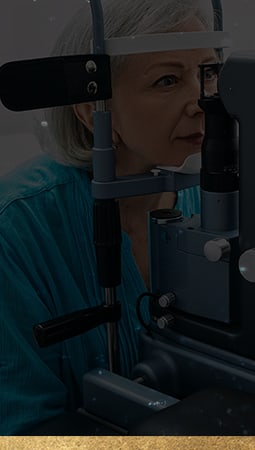Diabetic Eye Exams & Why They’re Important
Diabetes can affect your eyes in multiple ways, but even when you live with this chronic disease, you can protect your eyes and maintain your vision. Getting routine eye exams is the first step to staying on top of your eye health and detecting vision problems early.
Diabetic retinopathy, cataracts, and glaucoma are some of the eye diseases that affect people living with diabetes. It’s important to note that while having diabetes may increase your risk for such eye diseases, it doesn’t necessarily mean you’re guaranteed to have them. With early diagnosis and treatment, these vision problems can be managed.
See how we can help preserve your sight from diabetes and request an appointment with us today.
Book AppointmentComprehensive Diagnostic Techniques
During a diabetic eye exam, we use diagnostic imaging technology to get a detailed view of the inside of your eye and increase the accuracy of our diagnosis for diabetes-related eye problems.
Optical coherence tomography (OCT) and optos imaging are two of the noninvasive imaging tools we use in our practice to take a close look at your eye and capture high-resolution images of your retina.
Diabetes-Related Eye Concerns
Diabetes can increase your risk of developing eye conditions that can lead to vision loss, such as diabetic retinopathy, diabetic macular edema, cataracts, and glaucoma.
However, with regular eye exams and the modern treatments available, preserving your eye health while living with diabetes is possible.
Diabetic Retinopathy
Diabetic retinopathy causes damage to the blood vessels in the retina and can eventually lead to vision loss.
When there is too much sugar in the blood, it changes the blood vessels in the retina. In the later stages of diabetic retinopathy, these changes can make blood flow more difficult and your blood vessels can become blocked. Those blocked blood vessels may then leak fluid or bleed. This is when people may start to see dark floating spots or streaks.
Diabetic retinopathy often has no easily noticeable early symptoms, but it can be detected through an eye exam—even at early stages—which is why frequent checkups are crucial for protecting your eyes when you have diabetes.
Cataracts
A cataract is a cloudy spot that forms in the lens of your eye. Over time, high blood sugar can lead to changes in your eyes that increase your risk of developing cataracts. Controlling your blood sugar levels can help prevent cataracts caused by diabetes.
Diabetic Macular Edema
Macular edema can be caused by several conditions, one of the most common being diabetic retinopathy.
Diabetic macular edema is swelling in part of the retina. Diabetes causes damage to blood vessels all over the body, and when the blood vessels in the eye become damaged, they can leak into a part of the retina known as the macula, causing changes to your vision.
In some cases, diabetic macular edema can cause vision loss.
Glaucoma
Glaucoma is a group of eye diseases that lead to damage in the optic nerve, which connects your eyes to your brain.
Having diabetes can increase your chances of developing glaucoma, which can cause vision loss if left untreated. However, routine eye exams can increase the chances of catching this condition early and protecting your vision.
Supportive Care Is Only an Appointment Away
We know there’s a lot involved in managing your diabetes, so allow us to take something off your plate. Our professional yet compassionate team at BRFE is here to address any concerns you may have about your eye health.
Even if you feel fine and are not experiencing any symptoms at the moment, we encourage you to get regular eye exams to monitor your eye health, vision, and overall well-being.
Book AppointmentOur Services
Visit Our Location
Our Address
- 207 S Michigan Ave.
- Big Rapids, MI 49307
Contact Information
- Phone: (231) 796-5321
- Fax: (231) 796-2957
Our Hours
- Monday: 8:30 AM – 5:00 PM
- Tuesday: 8:30 AM – 5:00 PM
- Wednesday: 8:30 AM – 5:00 PM
- Thursday: 8:30 AM – 5:00 PM
- Friday: 8:30 AM – 4:00 PM
- Saturday: Closed
- Sunday: Closed
Parking is available in front of our building, or park in the lot a few doors down to the south.
Our office is closed on the first Tuesday of every month from 12:00 PM – 1:00 PM for staff meetings.
For Ocular Emergencies, Call:
231-527-9111
Our Brands








